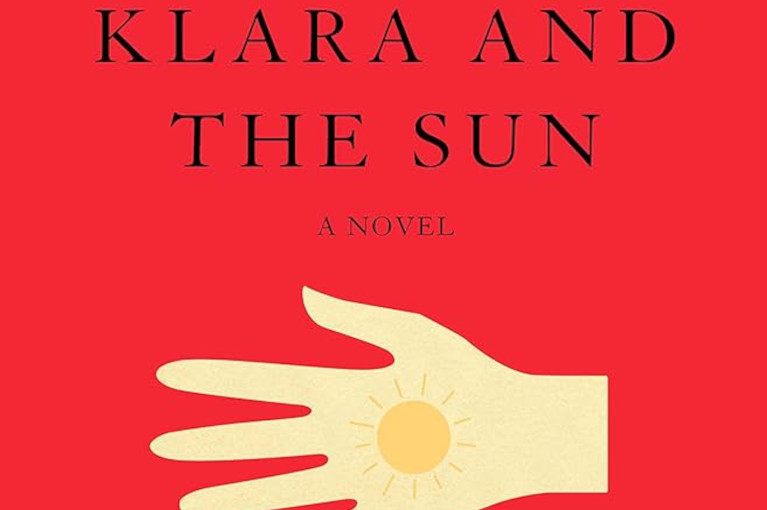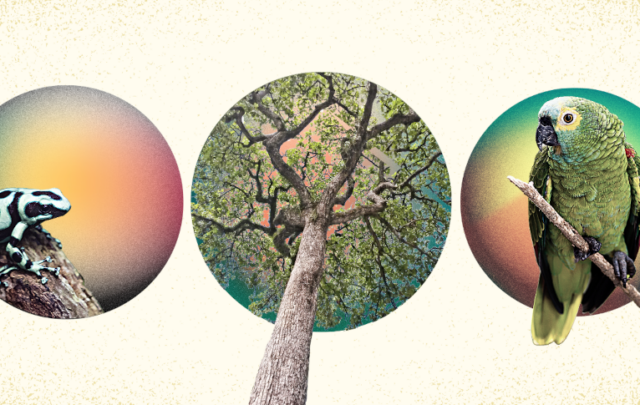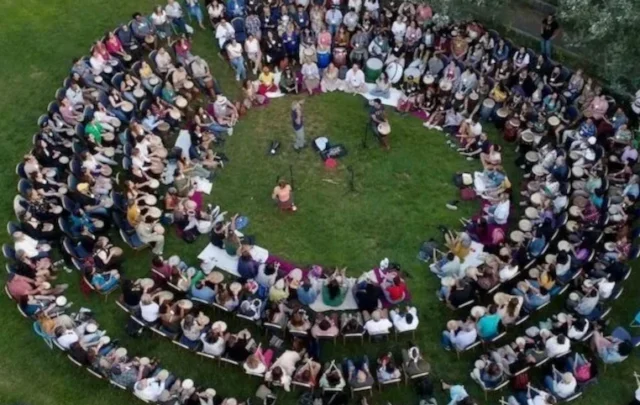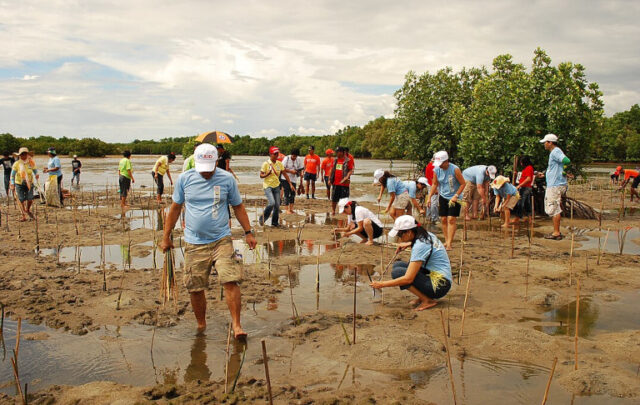Spoiler alert: I am talking about books in this essay. One is non-fiction and I don’t think that revealing its contents will ruin the reading experience for anyone else. The other book, however, is a novel; surprise is essential to the narrative experience. I tried to talk about the main lesson in this story without giving the story away… but that proved impossible. So if you haven’t yet read Klara and the Sun by Kazuo Ishiguro, then you probably should stop reading this essay. Come back later…
 For weeks now, I have been working my way through Determined: A Science of Life Without Free Will by Robert Sapolsky. It has been a bleak exercise. On the one hand, if our culture were to abandon the idea of free will, then we also lose most of the rationality behind merit, both of deserving reward or deserving punishment. This blows holes through everything from inegalitarian status and wealth to incarceration and state-wielded violence. If nothing we do can be said to be purely our fault or our initiative, if there is no individual prime cause, then there is no individual desert.
For weeks now, I have been working my way through Determined: A Science of Life Without Free Will by Robert Sapolsky. It has been a bleak exercise. On the one hand, if our culture were to abandon the idea of free will, then we also lose most of the rationality behind merit, both of deserving reward or deserving punishment. This blows holes through everything from inegalitarian status and wealth to incarceration and state-wielded violence. If nothing we do can be said to be purely our fault or our initiative, if there is no individual prime cause, then there is no individual desert.
Obviously, this undermines any notion of differential treatment of people. Nobody earns more than anybody else, nobody deserves less. And I think this would make the world a kinder place and probably alleviate most of the stresses we suffer today. Not least of which, the ideas of ownership and profit and wage labor all sort of unravel. Capitalism is intrinsically dependent upon individual merit. If anybody in your shoes could have “earned” their way into that cushy corner office with the fat paycheck, then it’s not you but your shoes… All the history that feeds into your embodied experience is what got you that job, not anything you did or did not do. Similarly, if you pull the trigger in a bank robbery, you specifically are not culpable. It is the sum total of your story and all your relationships with the world that created that moment.
Which is where I have problems… Not because I disagree with the idea that crime is the result of social systems. I do not doubt that anyone placed in the bank robber’s exact position would behave like the bank robber. The robber himself is not at fault as much as the culture that created the robber, and so the robber does not deserve punishment (though, like Sapolsky, I believe that containment or sequestering away harm is a good idea). To the contrary, the robber deserves opportunities to escape the environment that made him a robber. That I agree with.
What is more difficult is the fact that responsibility breaks down without free will. If the robber is not at fault, then the robber baron is also not at fault. They were both made by their world. They acted exactly as that sum of experience would lead them to act, neither more nor less. But then that means neither is particularly, individually, responsible for their actions — nor for whatever remediation is necessary as a result of those actions. So who cleans up their messes? Who salves the hurt and heals the wounds? Who restores victimhood to well-being? Who pays for the damages?
I find it easier to imagine society cleaning up after the robber than the baron. While the robber may have caused some hurts that are impossible to rectify or remedy — nobody will come back to life and no amount of payment will change that — such hurt is localized and contained. Cleaning up the robber’s mess is largely a case of redistributing wealth. It is not a difficult or costly or time-consuming task. It is arguably not even a real mess, in that it’s mostly just about money not physical things, not lives. But that baron… His impact and his capacity to cause harm are far greater. He has caused hurts not just to humans, never mind just to human property distributions. He has caused hurt to the entire planet, and those damages will outlast him. Some may outlast his culture. He has caused very expensive harm, much of it irremediable. So who pays for that clean up and who does that work?
If there is no responsibility, is there a justification for forcing the person who caused the damage to do the work that unmakes that damage? If you don’t believe in a person causing the damage, then no. That robber baron is no more culpable than the bank robber. However, is it fair to make someone else do what is the onerous and dangerous physical labor necessary to clean up mine tailings or electronics waste or ocean islands of toxic plastic trash?
This is a sticky social question and one we need to grapple with — because there are many existential messes to clean up. And so far, Sapolsky is not doing a good job of pointing the way out of this conundrum. (I still have a few chapters to go in which perhaps he will have more to say on this issue.) However, I think there may be another way to look at responsibility.

I also read Kazuo Ishiguro’s Klara and the Sun this week. This is a story centered on the age-old question of what it means to be an individual. What is the ghost in the machine? Who is “I-am” and where is that being located in the physical world? Sapolsky would likely agree with Mr. Capaldi, a “portrait artist” in Ishiguro’s novel who could find no evidence of some unique spark in a person that could not be recreated by the sum total of that person’s experience. The total is not more than the sum. There is no emergent self.
Other characters in Ishiguro’s narrative have other opinions. Of course, the idea of a narrative itself is dependent on unique actors, or at least unique situations. But in the last pages there is a further idea put forward. What if this self is not created by the self? What if the person is defined by relationship? What if each of us is created by the people who share life with us, by the love and care that is given to us?
The central character in Klara and the Sun, Klara, is an Artificial Friend who is bought by a young girl who is dying. There is a subtext of cause and guilt around this terminal illness in which society, the parents, and the girl herself are all implicated. It is not a natural sickness, but the result of a choice. So perhaps this burden of guilt has lead the girl’s mother to consider something rather monstrous — using the robotic Klara to house her daughter’s personality. That this would erase Klara is not much dealt with in the novel. The focus is on whether it is possible to be another person merely by looking and acting like that person. And Klara ultimately decides that it is not enough to seem like a person because the person is not self-defined. The person is created by others.
Klara might have been able to look and talk and even think like her dying human friend, Josie, but she could never replace Josie. Because Josie is not just the girl in the body. Josie is also the daughter in her mother’s heart and mind. Josie is childhood sweetheart and best friend to her neighbor. Josie is daughter and inspiration to her father. None of these identities lives within Josie. They are all part of others, part of relationship with others. They are all created and maintained by other bodies. Klara may be able to seem like Josie, but she was not at all sure that she would become all those other Josies. She didn’t think it was possible to transfer all those relationships — all of which included entangled memory and biology, stories and projections, many that had nothing to do with Josie herself. And yet Klara would not be Josie without all those relationships.
I think this is an absolutely beautiful conclusion. We are not individuals programmed solely by genetics and environment; we are the connections we actively live through. We are just as much alive within others as we are within our own bodies. We are made real in the hearts of those who love us. We live in those hearts whether we still live in body or not… which is approximately the message of most of the world’s wisdom traditions. Klara couldn’t be Josie after Josie died because Josie would still be alive in Josie’s mother’s heart. All those we lose in body stay with us, live with us in very real ways, when we keep them in memory.
I was charmed by the story, but then I realized Klara’s discovery has implications for the Determined individual. Sapolsky comes at the question from a different perspective. Rather than relationship and care, he looks at biology and sociology. In essence he creates an even more isolated individual than free will ever could, a world of end points bumbling at random against each other, no connection, no reciprocity. No responsibility. Just meaningless actions in meaningless acting bodies.
I suppose that could be the real physical case. But does that feel true? Does it seem true? Not really. Because we aren’t isolated. What we do, who we are, how we live — these are all relational processes, not individual qualities. We live through others. How we live is largely created in the relationships between us. I am a community — and not just with other humans. In fact, humans are a small part of the community that is me.
So back to the robber baron and responsibility. As an individual being without agency, he can’t be held responsible for the things that happened because he did exactly what he was programmed to do. But what about the collective noun that is that robber baron in Klara’s viewpoint? What if he is made not merely by biology and social norms, but by society? What if he is made by the interactions he has had with others? What if he is the effects he has on other lives? He may not be guilty, may not have earned punishment. But does he not owe restitution? He owes his existence to others; surely the least he could pay back of that debt is remedy for the harm he’s inadvertently caused.
It’s a thin thread… but then so is all philosophy. This one at least feels more durable, able to withstand real tension. Sapolsky’s idea of the self would abandon blame and reward, which is not bad, but it would leave us with quite a lot of “agent-less acts” to clean up. Adding Klara’s idea of a self that lives in relationship might be the thread that pulls that random assemblage of random actors back into a functional web, a responsible, integral, whole organism. And truly, Klara’s idea seems more true than Sapolsky’s random quivering atoms. The universe is all about relationship. It is defined by relationship… But truth is also relative and debatable, and therefore mostly irrelevant. It’s being that is important. And a society that is a related web is going to be more functional. It’s going to work.
And it’s going to get the work done. Because who pays for the destruction caused by the robber baron? The whole of the society that made him. Ultimately, those who benefitted most from the harm done need to work the hardest to unmake that harm, but we all need to unmake the structures and ideas that made the harm possible, that made the baron. We build each other. So we work to build a world that does not build robbers at any scale. That is what Klara would say, I think. And really, I think Sapolsky would agree…
Addendum to previous post
I was talking about things that underpin our worldview yesterday. Naturally, there were responses. In reading and thinking about those responses, I discovered that I didn’t make a few things more explicit. These are the frames on my own worldview, so I don’t talk about them as much as I should. To be honest, that is partly intentional. I prefer to talk around these ideas and let them grow in the minds of others — because some are not very popular.
Here is one… I don’t actually believe in an independent and delineated self, so it’s very hard for me to believe in some entity within an organism that serves as the self’s decider. In my experience, there is no organism that is not a committee, with all being and doing the result of interplay between many organisms at probably all scales.
For example, I don’t wake up and decide to put on a sweater. My body does, with all its diverse array of needs, some of them not in alignment with sweater-wearing. I don’t pick out a particular sweater either. At minimum I am limited by what I have in the closet, which is a whole web of dependencies, spanning the globe. But even my tastes are not quite my own; they are influenced by needs in my body (texture, weight, sizing) and the history and culture my body has lived within and continues to live within. There are even pulls from the future on my sweater-wearing. I may have need of that sweater a few days from now and no desire to wash it after wearing it today. I may have packed most of the sweaters away for the summer. Or on a broader level, sweaters are not as ubiquitous as they once were as people are noticing the climbing temperatures around the globe. Manufacturers are not making as many. There isn’t as much on offer now partly because they anticipate a rapid decrease in demand.
This is a rather silly example, but you get my point. I just don’t much believe in individuals acting under their own direction. I believe there is will, it’s just not free. It is bounded by relationship. Whatever you think you’ve decided or done, you had input in critical ways at all scales and from many other beings.
Yesterday, I talked a bit about how a lack of free will removes the justification for punishment. I think this would be a good thing, though it does make for problems with restoration and reconciliation. However, a lack of free will, acknowledging that you are not an independent actor, has another side. You shouldn’t earn punishment, but you also shouldn’t earn reward.
I only talked about this briefly yesterday, but it bears some extra consideration. If there are no independent actors, then all rewards accrue to the community that supports any given reward-earning act. In other words, income doesn’t accrue to an individual. It goes to the community, particularly the places where resources were sourced and labor was done. It goes to the people who feed and care for that individual. It goes to the people who helped that individual become an adult. It goes to the people who do whatever is necessary to produce that income. And it goes to some community revenue pool to replace and restore the places were resources were removed.
Obviously, this is a bit more radical that most people are willing to go, probably far beyond Sapolsky’s ideas of determined acts. His expertise is in punishment — he does not talk about the ramifications of a lack of free will on merit or reward. In any case, that would be a hard thing to push past an editor. It makes it rather hard to sell books, hard to sell anything, in truth. But that’s sort of the point. If all rewards are dependent on many actions and actors — as all things are — then nobody earns any larger slice of the reward than anyone else. And the more-than-human world receives most of any revenue — because the more-than-human world provides all the raw materials and most of the labor involved in doing everything to support every body.
This would have an extremely chilling effect on our modes of economy. In fact, if we had to pay back the externalities in this fashion, there would be no profit possible at all. Because profit only works when you do not pay for all the costs. So a lack of free will, means the complete undermining of our socioeconomic systems. (Hence the attraction to an old anarchist like me…)
So, I’m just going to let you all sit with that…





